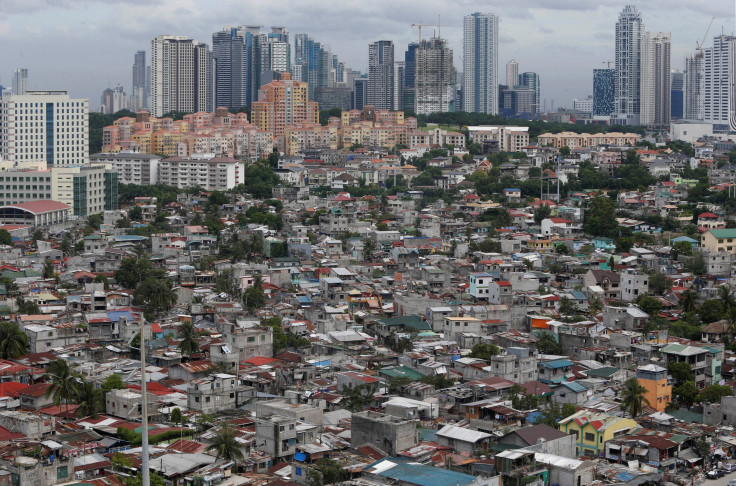Will The Capital Of Philippines Move? Government Mulls Relocating Capital Due To Congestion And Overpopulation In Manila

The Philippines' government is mulling relocating the country's capital and the centre of President Rodrigo Duterte’s government — Manila — due to congestion.
To this end, the House committee on housing and urban development, headed by Alfred Benitez, has formed a technical working group (TWG) which will review a proposal to create a body known as administrative capital city planning commission (ACCPC). The function of this proposed body would be to study the feasibility of relocating the capital and for the creation of “mass housing projects for informal settler families (ISFs),” according to a government press release.
“Overpopulation, traffic congestion and high vulnerability to natural disasters have made Metro Manila or the National Capital Region (NCR) a pariah among world cities. There is a need to rethink and develop a masterplan that will decongest Metro Manila,” Benitez, chair of the House Committee on housing and urban development, said.
Metro Manila, one of the most densely populated regions of the world, was home to 11.9 million people in 2010, according to Benitez, who cited data provided by the Philippine Statistics Authority. The number is expected to have risen sharply since then.
“Out of the 1.5 million ISFs in the country, nearly 600,000 are found in Metro Manila. The off-city government programmes for the ISFs failed because many of those which have been relocated have returned to the national capital region(NCR) as their relocation sites are far from their source of income,” Benitez said, explaining the need to undertake the project.
Agreeing with Benitez that ISFs have migrated back to the NCR after being relocated, Housing and Urban Development Coordinating Council (HUDCC) assistant secretary, Avelino Tolentino III, suggested that the government lands should be converted to housing sites. This, he argued, will make the housing projects more affordable, while being cheaper for the government in the long run as it would still control the land.
Benitez also suggested that as they had similarly moved various government institutions to Quezon City for the purpose of decongestion, they would be able to repeat the endeavor. He also cited Korea, Malaysia, and Brazil as examples of several countries that have undertaken similar projects successfully.
“If we have done it before because we wanted to decongest Manila, then the same reasoning applies, that we could move our administrative offices out of Metro Manila,” Benitez argued.
© Copyright IBTimes 2024. All rights reserved.












